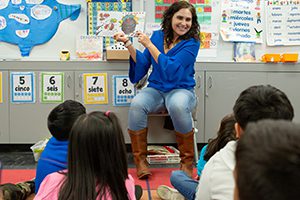Developing Great Teaching
I have recently been exposed to discussions teachers are having in the United Kingdom, and it turns out — drum roll, please — they talk about the same things as teachers in the United States.
One thing I have been interested to learn is that teachers in the U.K. are just as exasperated by low-quality professional development as teachers here. Too often professional development consists of little more than “attending courses or listening to stale talks accompanied by endless slides,” to quote a new report from Teacher Development Trust
The Teacher Development Trust, which is a U.K. organization dedicated to improving teaching, takes — to my amateur eyes — a nice look at the recent research on professional development and says that although most current professional development is pretty useless, there are ways to make it useful.
And by useful they mean that it results in improvements in student achievement. Or, as it says, “The key finding of the review was that professional development opportunities that are carefully designed and have a strong focus on pupil outcomes have a significant impact on student achievement.”
To be useful, professional development needs to — it’s hard to imagine this even needs saying, but apparently it does — be relevant to teachers’ experiences with students; it needs to fit into the school day; and it needs to have a rhythm that allows teachers to learn new things, try them out, gather evidence on what worked or didn’t work, and have time to think about why.
One finding that David Weston, chief executive of the Trust, said was particularly important is that professional development should focus on what the report calls “subject-specific pedagogy.” A great deal of the professional development teachers get in both the U.K. and the U.S. is about generic teaching skills which, the report says, is “insufficient.”
Instead, the report said, professional development needs to draw on deep wells of research that can help math teachers teach math, science teachers teach science, and so on. In addition, it needs to help teachers learn how to develop formative assessments, so they can gauge whether students are learning what they should and learn different approaches for kids for whom the first approach didn’t work.
And, the report said, effective professional development requires “collaboration between teachers in working together to try out and refine new approaches, sharing ideas and supporting each other through shared risk taking.”
All in all, this report helps us think about what makes professional development useful — and what doesn’t — and it deserves attention here in this country as well as in the U.K. If you’d like to see a video on the report’s release at Parliament, click here. Watch for Tom Bennett of ResearchED, saying that most current professional development is “way harmful.”
By the way, in Huffington Post this week, I talk more about collaboration — what it looks like, why some teachers resist it, and advice on how to make sure it’s meaningful.
Photo credit: Teacher Development Trust






